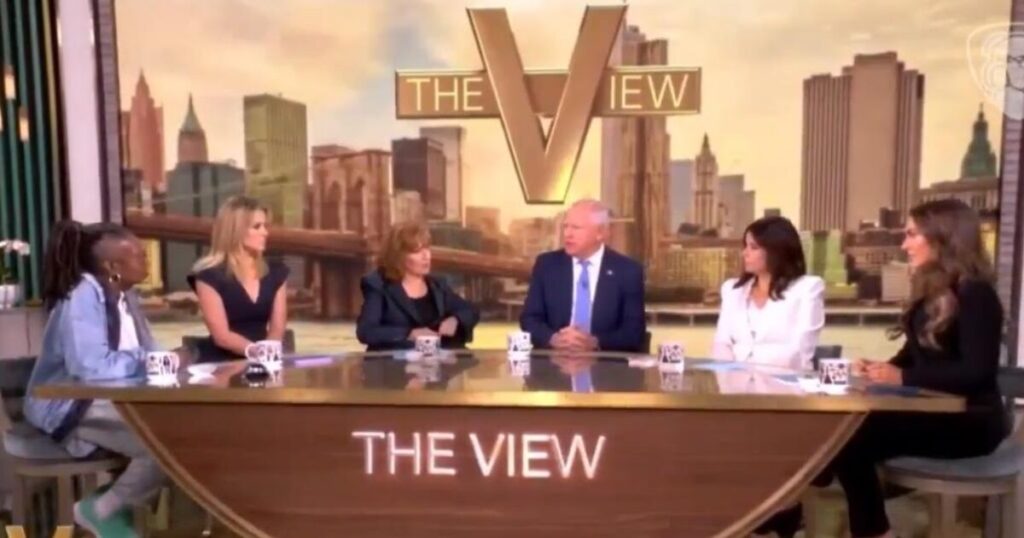In a recent appearance on “The View,” Governor Tim Walz, who is also the Democratic vice presidential nominee alongside Kamala Harris, engaged in a heated discussion regarding a campaign stunt by former President Donald Trump. The focus of the conversation was Trump serving fries at a McDonald’s in Pennsylvania, an event that Walz perceived as a disrespectful attempt to pander to working-class voters. This reaction, which some might deem excessive for a public figure of his age, suggests a deeper narrative about political authenticity and the nature of campaign tactics employed by both parties.
Walz’s criticism centered on Trump’s affluent background, implying that wealth precluded the former president from genuinely understanding or empathizing with average workers. He contrasted this with his and Harris’s own middle-class upbringings, suggesting that their experiences lent them credibility concerning labor-related issues. This sentiment, however, appeared somewhat ironic given the nature of political campaigning, where candidates from all walks of life engage in public appearances designed to connect with voters — a practice Walz himself is not immune to. His accusations of disrespect seem to overlook the established practice of such “photo-op” moments that are commonplace in modern politics.
The allegations that he threw at Trump about disrespecting McDonald’s workers were further complicated by the reality that many McDonald’s managers, who are deeply involved in the daily grind, wear ties themselves. Walz’s argument that Trump’s actions amounted to a lack of respect simmered alongside the acknowledgment that the fast-food workers appeared receptive to his visit. This raises questions about the sincerity of Walz’s indignation, suggesting that his criticism may have been more a tactical maneuver than a reflection of genuine concern for workers.
Moreover, Walz’s invocation of Kamala Harris’s alleged working-class status as a former McDonald’s employee has come under scrutiny. Reports have surfaced questioning the authenticity of Harris’s claims regarding her experiences at the fast-food chain, suggesting they may be part of a narrative crafted to enhance her relatability as a candidate. The sudden emergence of her McDonald’s backstory coinciding with political ambitions raises red flags about its credibility, and by association, Walz’s endorsement of this narrative casts doubt on their overall strategy.
This instance of politically charged criticism seems to encapsulate a broader trend in American politics, where candidates are often scrutinized for their authenticity, particularly regarding their understanding of working-class struggles. Walz and Harris’s approach appears to echo a familiar trope in political campaigning, where candidates attempt to align their narratives with those of everyday Americans. However, the effectiveness of such strategies depends heavily on the public’s perception of authenticity.
As indicated by recent polling data, voters are becoming increasingly aware of the discrepancies between political rhetoric and reality. This growing awareness could spell trouble for candidates like Walz and Harris, especially if they continue to rely on questionable talking points and narratives that might not resonate with their constituency. In an era where transparency and authenticity are prized, the challenge remains for political figures to genuinely connect with voters in meaningful ways without resorting to exaggerated claims that could ultimately undermine their credibility.

